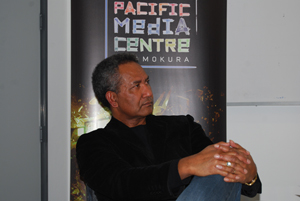
SUVA (Radio NZ International / Pacific Media Watch): An academic says Fiji's new electoral decree is largely fair, and compares to those of Australia and New Zealand, but it does contain some concerning factors.
Auckland University's Dr Steven Ratuva, formely of the University of the South Pacific, says a clause stating that organisations which receive aid from foreign sources are banned from participating in any election related activity for the forthcoming general election on September 17 is particularly concerning.
He says this means a lot of civil society groups cannot participate, and that outspoken organisations like Akuila Yabaki's Citizen's Constitutional Forum (CCF) now face massive fines or up to 10 years in prison for speaking out.
"The Citizen's Constitutional Forum, whose fundamental aim is to engage in dialogue towards building a democratic society - an election is very much part of the kind of work they deal with. I mean, the CCF has been under a lot of political pressure in place, the pressure's going to be much more."
- Dr Steven Ratuva.
Second choice
Earlier, Radio NZ International reported that Fiji's attorney-general had conceded that the country's newly appointed elections supervisor was the second choice for the job, and that none of the applicants met the criteria.
Fiji has given a date for the first democratic elections in the country in eight years.
On Friday, the President, Ratu Epeli Nailatikau signed off September 17 as the day set aside.
The former acting Permanent Secretary for Justice and registrar of political parties, Mohammed Saneem, was then announced as the elections supervisor by the attorney-general and minister responsible for elections, Aiyaz Sayed-Khaiyum.
RNZI's correspondent in Suva, Ricardo Morris, who was at the announcement, said 13 applications were received for tghe role, with 3 Fijians and 10 foreigners applying.
But he said Sayed-Khaiyum admitted that none of the applicants met a set criteria.
"A panel of consultants who were working with the solicitor general's office and the attorney general found that none of the applicants met the criteria, so they suggested one of the senior consultants from Australia, Laurie McGrath to take over the post, but he was unable to, so the same panel of consultants, according to Aiyaz Sayed-Khaiyum, then recommended Mohammed Saneem."
- Ricardo Morris.
This work is licensed under a Creative Commons Attribution-NonCommercial 3.0 New Zealand Licence.




